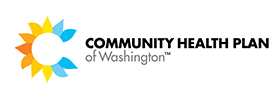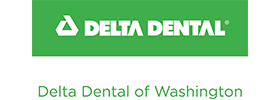
While alternatives to traditional health insurance can offer cost savings and flexibility for some individuals, they also come with their own set of challenges and potential problems. It’s crucial to be aware of these issues before considering an alternative to health insurance.
Limited Coverage:
Many alternatives provide limited coverage compared to comprehensive health insurance plans. They may not cover pre-existing conditions, essential health benefits, or preventive care, leaving you vulnerable to unexpected medical expenses.
Lack of Regulation:
Health insurance is heavily regulated to ensure consumer protection and guarantee certain standards of care. Some alternatives, such as health-sharing ministries and discount health plans, may not be subject to the same regulatory oversight, which can lead to less transparency and potential risks.
We have seen Health Share Ministries forced to leave the state over bad behavior. Despite some offering lucrative commissions offered by some of these companies, we want coverage access to all our clients with minimal fight when they utilize the product.
Pre-Existing Conditions:
Some alternatives may exclude coverage for pre-existing conditions or impose waiting periods before covering them. This can be a significant drawback if you have chronic health issues. If it has a waiting period then it is not a qualified health plan.

Limited Provider Networks:
Direct Medical Providers can be on a subscription or fee basis. They have a registry, and some people use it to supplement primary care availability. However most do not have access to major care such as surgery so be aware of limitations. Lupine Family Medical is one example in Wenatchee.
Alternative plans like short-term health insurance or discount health plans may have limited provider networks. Short-term plans have severe limitations in Washington State. We utilize the flexibility of the Special Enrollment periods to enroll and disenroll people into a qualified health plan for a few months.
Potential for High Out-of-Pocket Costs:
Catastrophic plans are limited to people under 30 or with a hardship exemption and are not available in all areas of the state. They also usually have a high deductible so in many cases a Cascade Care plan
Ineligibility:
Some alternatives, like Medicaid, Medicare, or health-sharing ministries, have specific eligibility criteria. If you don’t meet these criteria, you may not be able to enroll in these programs. Read the fine print.
Risk of Non-Payment:
In the case of health-sharing ministries, there is a risk that other members may not contribute their share, leaving you responsible for your medical bills. Be aware of any program that requires you to negotiate with the provider.
Before choosing an alternative to health insurance, it’s crucial to carefully evaluate your healthcare needs, budget, and risk tolerance. Consult with a financial advisor or insurance expert to determine which option is best suited to your individual circumstances. Additionally, staying informed about changes in healthcare laws and regulations can help you make informed decisions about your coverage.

Topics: Health Insurance, Healthcare, Molina, Apple Health, Medicare, Obamacare, Mi Seguro, Seguro de Salud, Coordinated Care, Medicare, Health share, Health Ministry, short term medical, catastrophic health, Direct Medical, Washington State, Cascade Care,
































